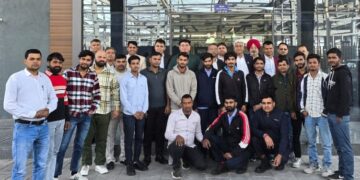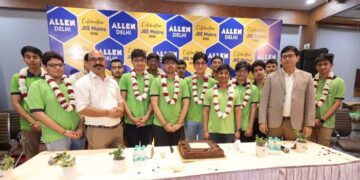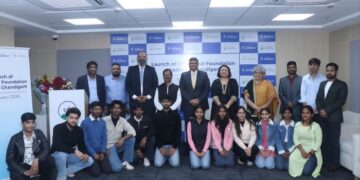By Sandeep Munjal, Director, Vedatya Institute
Adapting to a Disrupted World: A New Era for Hospitality Careers
The world is in the midst of profound economic and geopolitical shifts. Not since the end of World War II, have we experienced such widespread disruption. The post-war era, marked by U.S.-led initiatives for globalization and free markets through bodies like the World Trade Organization (WTO), ushered in a long period of economic stability and growth. But today, that world order is changing.
The COVID-19 pandemic in 2020 was a seismic event that rattled economies, disrupted global supply chains, and altered workforce dynamics. Just as nations began charting a path toward recovery, new geopolitical tensions and armed conflicts deepened the cracks in the global order. A shift from globalization toward protectionism, rising trade barriers, and political volatility now dominate the global discourse—bringing with them far-reaching consequences for businesses and employment sectors, hospitality included.
In such turbulent times, how should students and professionals prepare for a successful career in hospitality?
Resilience Amid Change: Hospitality’s Evolving Role
Despite the uncertainty, the hospitality industry remains resilient. It continues to offer promising career opportunities—especially for those willing to evolve with the times. While AI and automation will undoubtedly change the way hotels, restaurants, and service organizations operate, the human element in hospitality remains irreplaceable.
However, future professionals will need to go beyond traditional training. They must adapt to emerging trends and adopt a mindset of continuous learning and strategic upskilling to thrive in this evolving landscape.
Beyond the Hotel Lobby: Expanding Career Horizons
Historically, hospitality careers were synonymous with hotels, restaurants, and tourism operations. That thinking needs to shift.
Today, hospitality graduates are finding success in a broader spectrum of industries within the services sector, including:
- Senior living and assisted care communities
- Luxury retail and customer experience design
- Healthcare services with a hospitality-focused patient experience model
- Facility management and integrated services
This diversification demands a broader skill set—one that combines service excellence with technological literacy and strategic thinking.
Must-Have Skills for the Hospitality Professional of Tomorrow
To stay ahead, hospitality professionals should focus on a mix of technical, analytical, and adaptive skills. Here are some key focus areas:
- Tech Savviness: Understand how AI, automation, and digital tools are transforming operations—everything from chatbots to smart room technologies.
- Multilingualism: In a globalized (and at times regionalized) job market, knowing additional languages—especially those tied to countries with growing hospitality demand—can be a key advantage.
- Sectoral Flexibility: Move beyond the mindset of working only in hotels or restaurants. Embrace opportunities across service-driven sectors that are scaling up rapidly.
- Cross-Functional Upskilling: Build competencies in design thinking, digital marketing, business analytics, sustainable practices, and facility design. These aren’t just buzzwords—they’re strategic tools in the evolving hospitality ecosystem.
- Research Orientation: Stay informed about emerging trends. Cultivate a habit of strategic reading, critical analysis, and proactive decision-making to align with ongoing industry innovations.
Role of Education: What Institutions and Learners Must Do
While educational institutions offering hospitality programs (both short-term and degree formats) are working hard to modernize their curricula through industry partnerships and real-time updates, the onus also lies on students. Taking personal initiative to build relevant, future-ready skills is essential.
Hospitality schools must foster industry-connected learning while creating pathways for students to explore interdisciplinary skills and real-world problem solving. At the same time, learners must actively engage with the shifting landscape—questioning assumptions, exploring emerging sectors, and preparing to pivot when needed.
The Way Forward: Build, Adapt, Succeed
We are at a defining moment for the global services industry—and hospitality is no exception. In this era of transformation, flexibility, innovation, and strategic upskilling will define success.
The professionals who thrive in tomorrow’s hospitality sector will be those who look beyond traditional roles, continuously build on their skill sets, and view change not as a challenge—but as an opportunity to lead.
About the Author:
Sandeep Munjal is the Director of Vedatya Institute, a leading hospitality and service-sector education institution. He is a strong advocate for future-ready learning and the integration of innovation, strategy, and sustainability into hospitality education.














